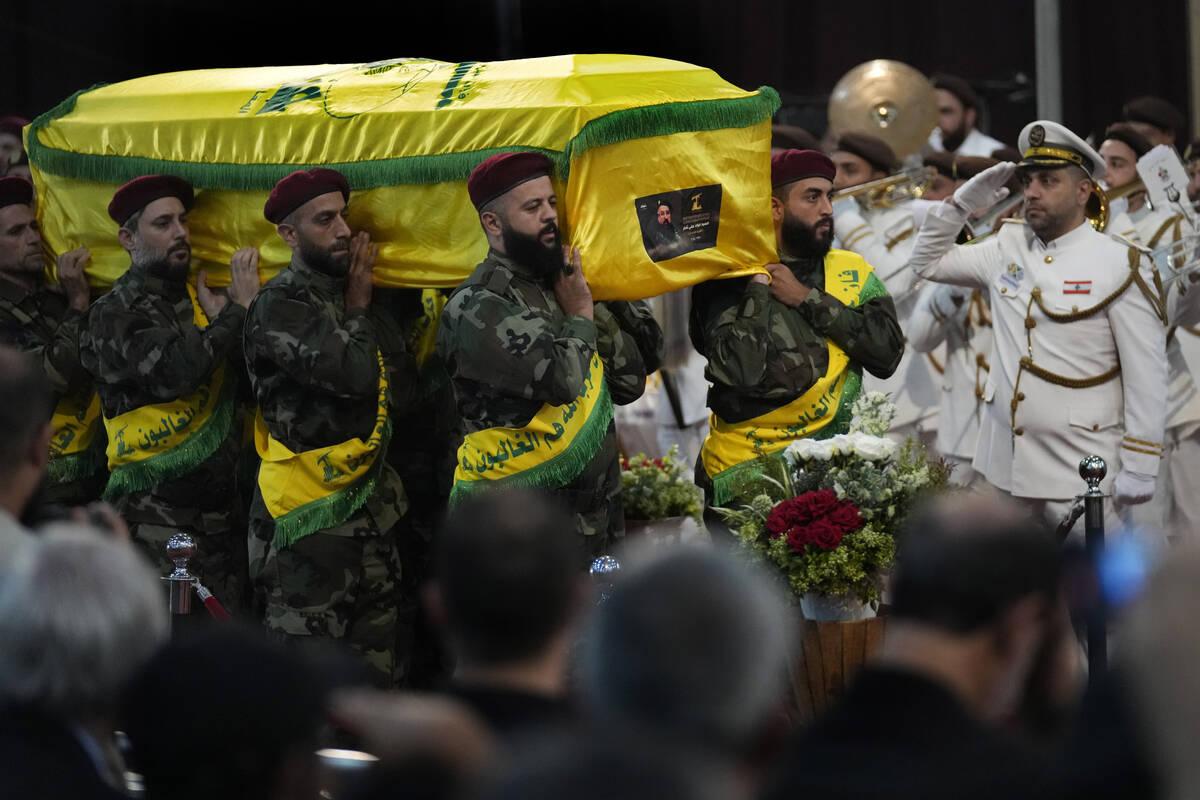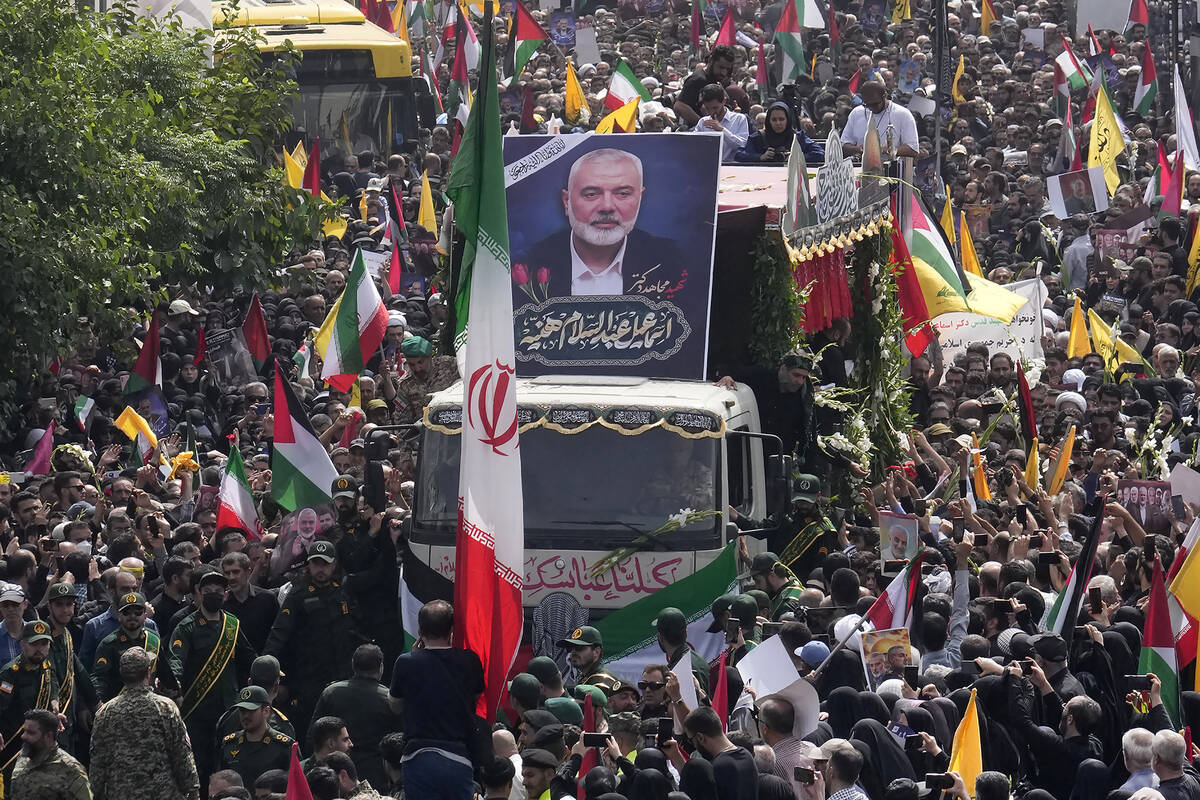Hezbollah leader says war with Israel has entered ‘new phase’ after killings of top figures
BEIRUT — Hezbollah’s leader warned Thursday that the conflict with Israel has entered a “new phase,” as he addressed mourners at the funeral of a commander from the group who was killed by an Israeli airstrike this week in Beirut.
Meanwhile in Tehran, Iran’s supreme leader prayed over the body of Hamas’ political leader, who was killed in a presumed Israeli assassination.
The back-to-back killings have increased fears of an escalation into a wider war, leaving the region waiting to see how Iran and ally Hezbollah will respond. Iran has vowed retaliation against Israel for the strike that killed Hamas’ Ismail Haniyeh on Wednesday in the Iranian capital of Tehran.
Israel has not claimed responsibility for Haniyeh’s assassination, but comments by Israeli military spokesman Rear Adm. Daniel Hagari stopped short of an outright denial.
“There was no additional airstrike, not a missile and not an Israeli drone, in the entire Middle East that night,” he said Thursday, fueling speculation that Israel could have used other means to kill Haniyeh.
Israel did confirm it carried out the strike Tuesday in Beirut that killed Hezbollah commander Fouad Shukur, along with an Iranian military adviser and at least five civilians. Israel said Shukur was behind a rocket attack days earlier that hit a soccer field in the Israeli-held Golan Heights, killing 12 children. Hezbollah denied being behind that strike, a denial that Hezbollah leader Hassan Nasrallah reiterated.
In a speech via video link to mourners gathered with Shukur’s coffin at an auditorium in a Beirut suburb, Nasrallah said, “We … have entered a new phase that is different from the previous period.”
But as he often does, Nasrallah kept his comments vague, vowing a “very well-studied retaliation” without saying what form it would take.
“The enemy and the one who is behind the enemy” — an apparent reference to Israel’s chief ally, the United States — “will have to wait for our coming response,” he said.
International officials have been scrambling to avert a cycle of retaliation before it spirals into a greater war. Since the Gaza war began in October, Hezbollah and Israel have traded fire almost daily across the border in exchanges that have caused deaths and the evacuation of tens of thousands from their homes. But they have also stayed within limits.
In Beirut’s southern suburbs, the biggest Shiite district in the capital, hundreds of black-clad mourners packed the auditorium. An escort of red-capped fighters carried Shukur’s coffin, also draped in a Hezbollah flag, down the aisle to the backing of a military band.
In his speech, Nasrallah praised Shukur as a veteran commander and denied that Hezbollah carried out the deadly strike on the soccer field in the mainly Druze town of Majdal Shams in the Golan.
Earlier Thursday in Tehran, Iranian supreme leader Ayatollah Ali Khamenei prayed over Haniyeh’s coffin in a ceremony at Tehran University, with the new president, Masoud Pezeshkian, next to him. State television later showed the coffin placed in a truck and moved on the street toward Azadi Square in Tehran and people throwing flowers at it.
Haniyeh’s remains are to be transferred to Qatar for burial Friday.
Haniyeh came to Tehran to attend the inauguration of Pezeshkian. Associated Press photos showed the Hamas leader seated alongside leaders from the Palestinian Islamic Jihad terrorist group and Hezbollah, and Iranian media showed him and Pezeshkian hugging. Haniyeh had met earlier with Khamenei.


















